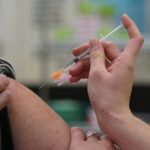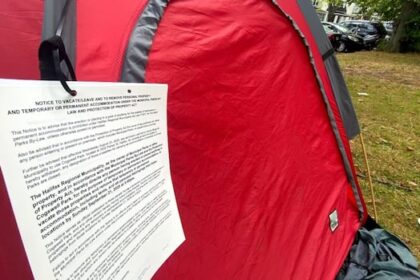OttawaAfter calling Ottawa home for the past seven years, Mohamed Alhassoun never expected the location of his high school to become the determining factor in his eligibility to apply to become a physician. Residents must have attended high school in Ontario for at least 2 years, ministry saysEmma Weller · CBC News · Posted: Oct 22, 2025 11:53 AM EDT | Last Updated: 1 hour agoA new provincial policy has disqualified international medical graduates from the first round of residency matching if they didn’t complete a minimum of two years of high school in Ontario. (David Donnelly/Radio-Canada)After calling Ottawa home for the past seven years, Mohamed Alhassoun never expected the location of his high school to become the determining factor in his eligibility to apply to become a physician. Alhassoun moved to Canada from Saudi Arabia in 2018, and is now a permanent resident who recently passed his Canadian medical board exams. The next step is to apply for his residency through the Canadian Resident Matching Service (CaRMS), a national agency tasked with pairing doctors to residency programs. However, a new provincial policy disqualifies Alhassoun from the first of two rounds. “Starting this year, to be eligible for Ontario International Medical Graduate (IMGs) positions in the first CaRMS match, international medical graduates must have attended an accredited Ontario high school for two or more years,” a spokesperson for the Minister of Health told CBC in a statement. Alhassoun graduated high school one year before moving to Ontario. “That’s a very painful message, honestly,” he told CBC Radio’s All In A Day on Tuesday. “[That] you have to apply and go somewhere else is, number one, painful. Like, I have nowhere else. Ontario is my own home.”According to the ministry, international medical graduates who don’t meet the high school criteria are eligible to participate in the second round of the residency matches. But Alhassoun said that’s not a likely option.”The second cycle basically takes anything that has been left over from the first cycle, and then everybody, including Canadian[s], international medical graduates and practising physicians who practise abroad … compete [for] the same seat. The seats are very limited,” he explained. Requirement ‘very arbitrary’The ministry said the policy will help ensure “local postgraduate training opportunities” and build Ontario’s health-care workforce. “I think it’s commendable that the province of Ontario is trying to really empower its own people, however drawing the line specifically at high school is a very arbitrary way of saying who is an Ontarian and who is not,” Alhassoun said. Some of Canada’s top doctors say they’re also struggling to understand why the province has made an Ontario high school education a requirement. “It’s frustrating because it’s hard for us to understand the relevance of two years of high school,” said Dr. Carrie Bernard, president of the College of Family Physicians of Canada (CFPC). “I understand that when the government wants to put resources, they hope the people will stay, but I’m not aware of any evidence that doing two years of high school in Ontario is a predictor [that graduates will] stay in Ontario to practise,” she said.Bernard said the requirement may also dissuade physicians with international medical degrees from applying to practise in Ontario. “Anything that dissuades somebody from becoming a family physician in Ontario is a concern,” Bernard told the CBC.CMA joins call for a rethinkOn Oct. 15, the CFPC released a joint statement with the Canadian Medical Association calling on the province to re-evaluate the rule change. “Removing barriers and obstacles to increase Canada’s supplies of doctors remains a top priority with an estimated 6.5 million patients without a family doctor,” the joint statement said. The Ontario Medical Association said it’s now expecting 170 eligible international medical graduates to take part in the first CaRMS round, a drop from 1,200 prior to the rule change.Ontario remains in a family doctor shortage, with approximately 2.5 million Ontarians without a physician as of June.ABOUT THE AUTHOREmma Weller is a reporter for CBC Ottawa and she’s also worked with CBC’s Your World Tonight. She can be reached at emma.weller@cbc.ca. With files from Liam Baker and All In A Day
Wednesday, 4 Feb 2026
Canada – The Illusion
Search
Have an existing account?
Sign In
© 2022 Foxiz News Network. Ruby Design Company. All Rights Reserved.
You May also Like
- More News:
- history
- Standing Bear Network
- John Gonzalez
- ᐊᔭᐦᑊ ayahp — It happened
- Creation
- Beneath the Water
- Olympic gold medal
- Jim Thorpe
- type O blood
- the bringer of life
- Raven
- Wás’agi
- NoiseCat
- 'Sugarcane'
- The rivers still sing
- ᑲᓂᐸᐏᐟ ᒪᐢᑿ
- ᐅᑳᐤ okâw — We remember
- ᐊᓂᓈᐯᐃᐧᐣ aninâpêwin — Truth
- This is what it means to be human.
- Nokoma











